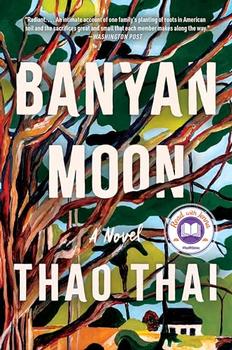Summary | Excerpt | Reading Guide | Reviews | Beyond the book | Read-Alikes | Genres & Themes | Author Bio

Francisco Maghabol has recently arrived in California from the Philippines, eager to earn money to send home to his family. But good job opportunities for Filipinos are scarce, and the threat of violence from the local white men makes life dangerous. Years later, Francisco's son, Emil, is determined to distance himself from his labor organizer father and his Filipino heritage in order to live out the American dream. Emil's plan works so well that Chris, his son, knows nothing about his family history or the suffering that Filipinos have endured. But Chris decides to learn about his heritage and eventually passes on his knowledge to his son, Enzo, who embraces his Filipino background. When the emergence of a global pandemic brings Lolo Emil to live with his family, Enzo can't avoid the rift between his father and grandfather. Following four generations of Filipino men, Randy Ribay's young adult novel Everything We Never Had is a story of how our pasts shape our futures and how generational patterns can affect a family for better or worse.
Ribay's novel features four points of view—Francisco, Emil, Chris, and Enzo—in four different settings and times, ranging from 1929 to 2020. Names and relations are mentioned throughout the story as if readers have already been introduced. A family tree included at the beginning of the book is helpful in navigating the jumps between the characters, and switches in points of view are clearly marked. There are numerous untranslated Filipino words and phrases throughout, which is unsurprising as young Filipino American readers are likely the target audience, and the use of several different regional dialects brings authenticity to Ribay's depiction of the lives of early Filipino immigrants. For those unfamiliar with the subject matter, a list of resources at the back of the book provides further reading for a broad understanding of Filipino culture.
This is very much a character-driven novel. Although each timeline has its own small plot, there is no overarching storyline. Rather, the narrative focuses on the typical complexities of father-son relationships compounded by cultural expectations, racial prejudice, and the desire to find one's place in the world. Each generation is significantly impacted by the previous ones, and while some of those impacts are positive—Emil is determined to instill in Chris a strong work ethic, Chris shares his knowledge of his Filipino heritage with Enzo—the book largely explores the negative effects and resulting trauma. This is portrayed in Emil's disgust with Francisco using him to show strikers the importance of family after Emil hasn't seen his father for months, and Chris's return to smoking once Emil moves in with the family—both reactions to the characters having their fathers back in their lives and related issues reemerging. The non-linear nature of the story allows readers to see how one character's choices cause trauma in the other men of the family, even when these choices are made with the best intentions.
Those good intentions and subsequent trauma trickle down over almost a century to Enzo, the fourth generation of Maghabol men. Enzo's story is particularly interesting because it takes place during the lockdown phase of the COVID pandemic; readers will have lived through the events of this time themselves and can see how one family is forced to grapple with personal, relational, and societal problems that are no longer possible to ignore because of social isolation. Enzo's sections are additionally interesting because they bring together three generations of the family—Enzo, Chris, and Emil—rather than just a father and son. Chris and Emil butt heads about almost everything—even a simple family dinner of handmade bulgogi pizza has "Lolo Emil…wondering aloud why Chris can't make a 'normal' pizza"—and the constant tension torments Enzo until he decides to bridge the gap between himself and his grandfather. Enzo's request to join his lolo on his evening walks is the first step in bringing the family together, and the two begin to build a relationship unlike that between any other Maghabol men, proving that generational patterns can be overcome. Although the story ends with a resurgence of tension, there's an air of hopefulness: perhaps family relationships can be mended and generational cycles broken if only people are willing to reach out and listen without judgment or expectation.
Short but impactful, Everything We Never Had is an exploration into the lives of the men of one immigrant family, showing how different generations react to the past and how they can begin to understand one another.
![]() This review
first ran in the December 4, 2024
issue of BookBrowse Recommends.
This review
first ran in the December 4, 2024
issue of BookBrowse Recommends.

If you liked Everything We Never Had, try these:

by Rosena Fung
Published 2024
A powerful coming-of-age graphic novel about how mothers and daughters pass down—and rebel against—standards of size, gender, race, beauty, and worth.

by Thao Thai
Published 2024
A sweeping, evocative debut novel following three generations of Vietnamese American women reeling from the death of their matriarch, revealing the family's inherited burdens, buried secrets, and unlikely love stories.
Sometimes I think we're alone. Sometimes I think we're not. In either case, the thought is staggering.
Click Here to find out who said this, as well as discovering other famous literary quotes!
Your guide toexceptional books
BookBrowse seeks out and recommends the best in contemporary fiction and nonfiction—books that not only engage and entertain but also deepen our understanding of ourselves and the world around us.